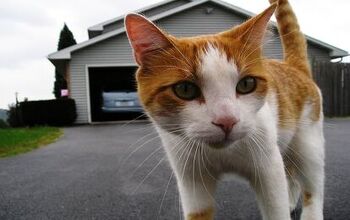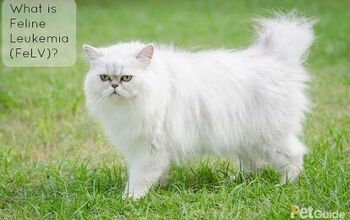What Is Feline Panleukopenia?

Hearing that a cat has panleukopenia can sound intimidating - and for good reason. Feline panleukopenia (also known as feline distemper or FPV) is a highly contagious and potentially deadly viral disease that affects cats, especially kittens and unvaccinated adults. But with the right knowledge and preventive care, pet parents can better protect their cats from this dangerous illness.
Here’s what you need to know about feline panleukopenia, how it spreads, and why vaccination is so important.
The Basics: What Exactly Is Panleukopenia?
Feline panleukopenia is caused by the feline parvovirus, which attacks rapidly dividing cells in a cat’s body, particularly those in the bone marrow, intestines, and developing fetus. The term "panleukopenia" itself means “a lack of all white blood cells,” referring to the virus’s impact on a cat’s immune system.
Because it damages the gut lining and suppresses immunity, this virus often causes severe gastrointestinal symptoms, dehydration, and secondary infections. It spreads quickly and can be fatal, especially in kittens.
How Does It Spread?
FPV is incredibly contagious and can survive in the environment for months, even up to a year- on surfaces like bedding, food bowls, clothing, and shoes. Cats can catch it through direct contact with an infected animal, or indirectly through contaminated environments and objects.
Even if your cat stays indoors, they’re not entirely risk-free. The virus can easily hitch a ride on your shoes or hands after contact with other animals, shelters, or outdoor spaces.
What Are the Signs of Panleukopenia?
Symptoms can come on quickly and may include:
- Sudden loss of appetite
- Vomiting and/or diarrhea (sometimes bloody)
- Lethargy or weakness
- High fever
- Dehydration
- Painful or bloated abdomen
- Rapid weight loss
In kittens, the disease can be especially aggressive. Because their immune systems aren’t fully developed, they can go from seemingly fine to critically ill in a matter of hours. Some cats may also show neurological signs if the infection occurs during pregnancy or early kittenhood.
If you notice any of these symptoms, especially in a young or unvaccinated cat, contact your veterinarian immediately. Prompt care can make all the difference.
Can It Be Treated?
There’s no specific cure for feline panleukopenia, but supportive veterinary care can help a cat recover. Treatment often involves hospitalization, where the cat can receive IV fluids, medications to control vomiting, and antibiotics to prevent secondary infections. The earlier treatment begins, the better the chance of survival - though outcomes vary depending on age and immune status.
Unfortunately, many kittens who contract panleukopenia do not survive, especially if they are not treated quickly. That’s why prevention is key.
How Do You Prevent Panleukopenia?
Vaccination is the most effective way to protect your cat. The FPV vaccine is considered a core vaccine - recommended for all cats regardless of whether they live indoors or out. It’s typically given to kittens starting at 6–8 weeks of age, followed by booster shots every few weeks until they’re around 16 weeks old. Adult cats should receive booster shots as recommended by your veterinarian.
Keeping your cat indoors, practicing good hygiene, and avoiding contact with infected animals or contaminated objects can also help reduce the risk.
The Bottom Line
Feline panleukopenia is a serious and often life-threatening disease, but it’s also highly preventable. With routine vaccination and prompt veterinary care, you can dramatically reduce your cat’s risk of infection - and help keep your home safe for your feline companion.
If you’re bringing home a kitten or adopting a cat with an unknown medical history, talk to your vet about getting them vaccinated as soon as possible. It’s one of the simplest and most important steps you can take to protect their health.

A proud mama to seven dogs and ten cats, Angela spends her days writing for her fellow pet parents and pampering her furballs, all of whom are rescues. When she's not gushing over her adorable cats or playing with her dogs, she can be found curled up with a good fantasy book.
More by Angela Vuckovic






















